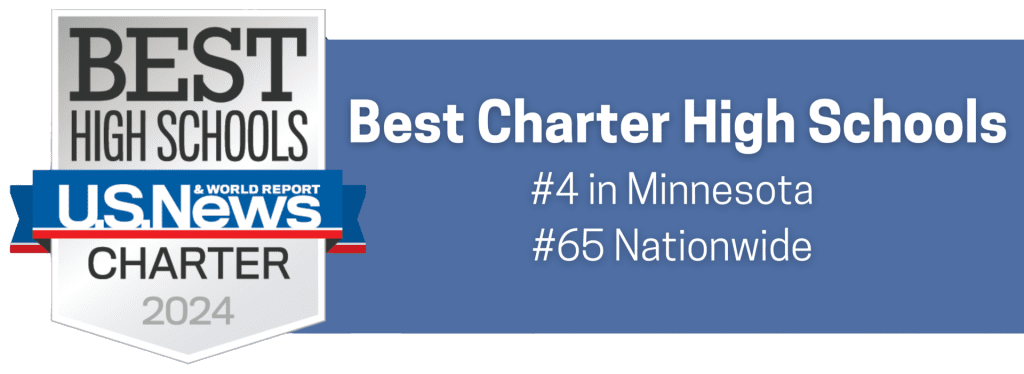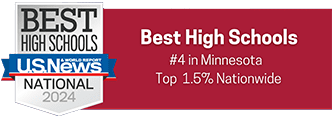School of Grammar
Throughout each year in the School of Grammar, classically educated children learn the factual foundation of each subject that will serve as pegs for more complex learning in the Schools of Logic and Rhetoric.
During the Prima through Fourth Level of the School of Grammar (Kindergarten – 4th grade), children are particularly adept at memorization and naturally absorb information.
Young children learn songs, rhymes, and recite facts with relative ease. Because young children are so eager to memorize, we challenge them by providing substantial subject matter for them to commit to memory.
At Parnassus, students learn the factual foundation of the subjects which are taught through songs, rhymes, and recitation. They learn the rules of phonics, spelling and grammar; the facts of history and geography; the vocabulary and grammar of world languages; and the foundations of science and mathematics. They also learn the basics of music and art and learn to appreciate their beauty.
Academics
Prima through Fourth Level Grammar (4G) are the years in which young students master and internalize the skills of language and mathematics as well as absorb a broad expanse of facts in history, geography, science, and the arts. In these years, students are expected to master foundational concepts and skills.
Language Arts
In initial literacy instruction, students master the phonograms of the English language and use them to capture their own oral language production in the written system. The Parnassus reading program is completely research based, field-tested, and consistent with the latest research on phonological awareness, automaticity, metacognition, phonics, oral reading, and direct instruction. In 4G, the students transition from learning to read to reading to learn. Our 4G reading curriculum is based on reading and analyzing classic literature. Students at all levels are exposed to a variety of genres such as nursery rhymes, classic literature, Aesop’s fables, Greek myths, poetry, and non-fiction biographies.
Mathematics
In mathematics, our scholars progress incrementally which gives them time to understand and practice a small concept before adding new information. Knowledge builds on knowledge and we seek to impart mastery of mathematical concepts to all students by distributing the skills across the year. Our math program is also cumulative, ensuring that practice and assessments cover ideas from previous lessons to ensure scholars retain and master the material taught. In the School of Rhetoric, our students have the opportunity to take advanced and college credit math courses.
History and Geography
In history, the chronological development of world civilizations is linked with a study of geographic regions, as well as the introductory concepts of civics and economics. Our Prima students study the United States and world history and geography. Beginning in 1G (1st Grade), scholars progress through the historical periods from the ancients in 1G, medieval in 2G, renaissance in 3G, and modern in 4G. This method provides a narrative and sequence of interconnected events from the ancient times to today, helping the students to better-understand the progress of history.
Science
In science, students learn about the natural world as well as the stages of scientific inquiry. We advocate for scientific learning and inquiry along with the Association for the Advancement of Science as stated in their 1993 report asserting that “…students should be actively engaged in learning to view the world scientifically. That means encouraging them to ask questions about nature and to seek answers, collect things, count and measure things, make qualitative observations, organize collections and observations, discuss findings, etc.” At Parnassus, topics in science are presented systematically and clearly, ensuring our students can make steady progress in their scientific learning.
Latin and Spanish
In science, students learn about the natural world as well as the stages of scientific inquiry. We advocate for scientific learning and inquiry along with the Association for the Advancement of Science as stated in their 1993 report asserting that “…students should be actively engaged in learning to view the world scientifically. That means encouraging them to ask questions about nature and to seek answers, collect things, count and measure things, make qualitative observations, organize collections and observations, discuss findings, etc.” At Parnassus, topics in science are presented systematically and clearly, ensuring our students can make steady progress in their scientific learning.
Physical Education
Similarly to the other disciplines taught at Parnassus, our Physical Education program is unique. It encompass physical activities and taekwondo, building not only physical strength, agility, and flexibility, but also character development, collaboration, team work, and leadership skills.
Art and Music
At Parnassus, students have art and music education weekly including art history and the history of music. Art and music do not occur in a vacuum. Art and music at Parnassus are integrated with the study of history. Conversely, the study of these art forms is foundational in the study of history. The arts are a reflection of the cultural, political, and philosophical circumstances of the time. Scholars at Parnassus learn to appreciate and critique the arts as well as work on their own art productions and musical performances.
Instructional Methods
The kind of instructional methods utilized by teachers depend on the Trivium stage that is being taught. Because the goal of the Grammar Stage (Prima – Fourth Level Grammar) is to lay a solid knowledge foundation, instructional methods used in this stage of the Trivium are those that most effectively accomplish that goal. In the School of Grammar at Parnassus these methods include:
- Lecture/direct instruction/dictation: teacher presents information, students listen
- Modeling/demonstration: teacher illustrates how something is done
- Principle-based question and answer: teacher asks question, students supply answer immediately
- Read aloud: teacher reads from text
- Singing/chanting: students learn a song, chant, or rhymes that tells about information they need to acquire
- Drilling small bits of information: memorization technique that helps students learn large quantities of information
- Flashcards: reviewing small bits of information on cards — usually math or vocabulary
- Sound-offs: group memorization of data by dividing up facts
Literacy Plan
Parnassus recognizes that the ability to read well is the foundation of all other learning. Parnassus’ literacy plan can be found below.

